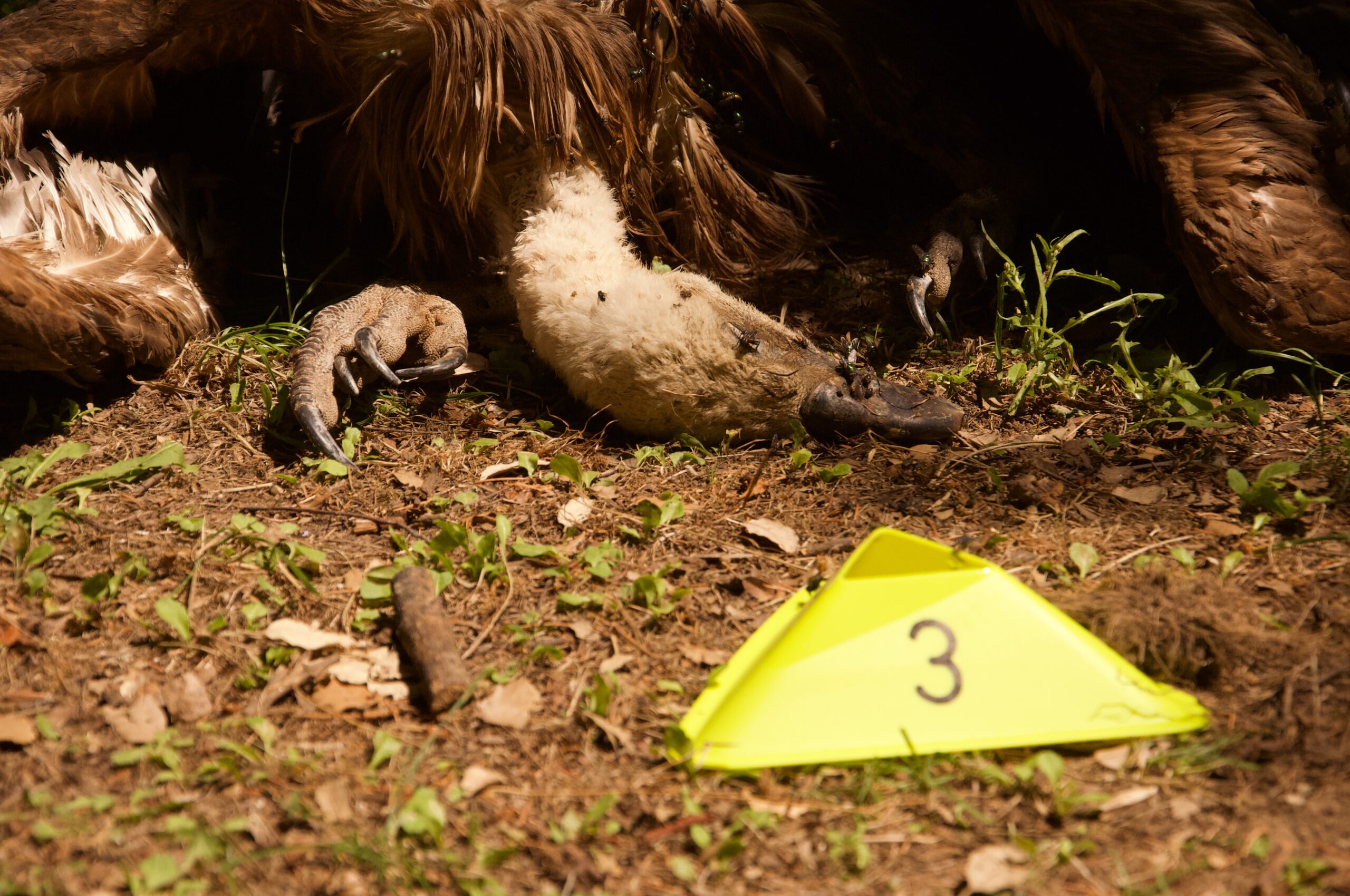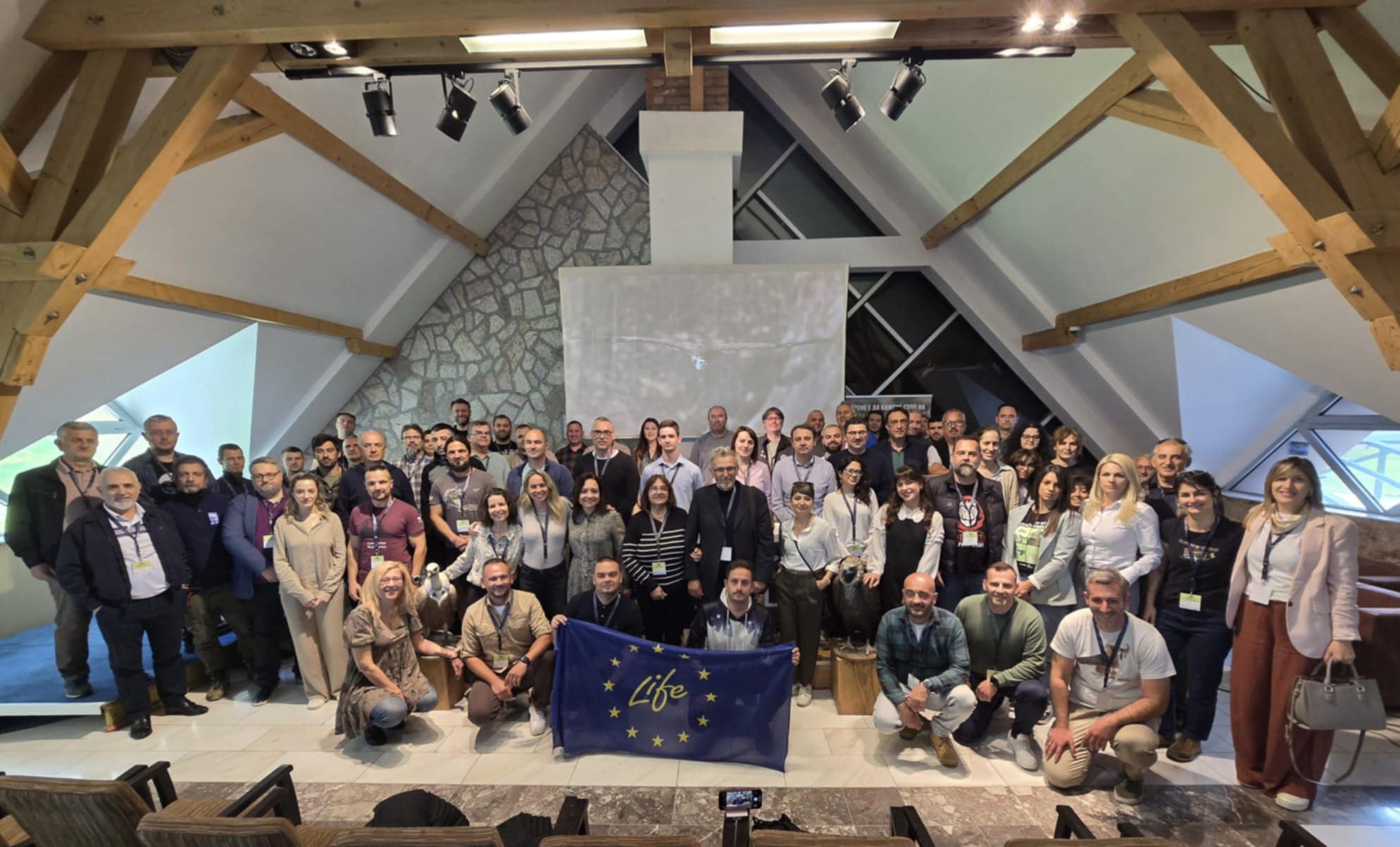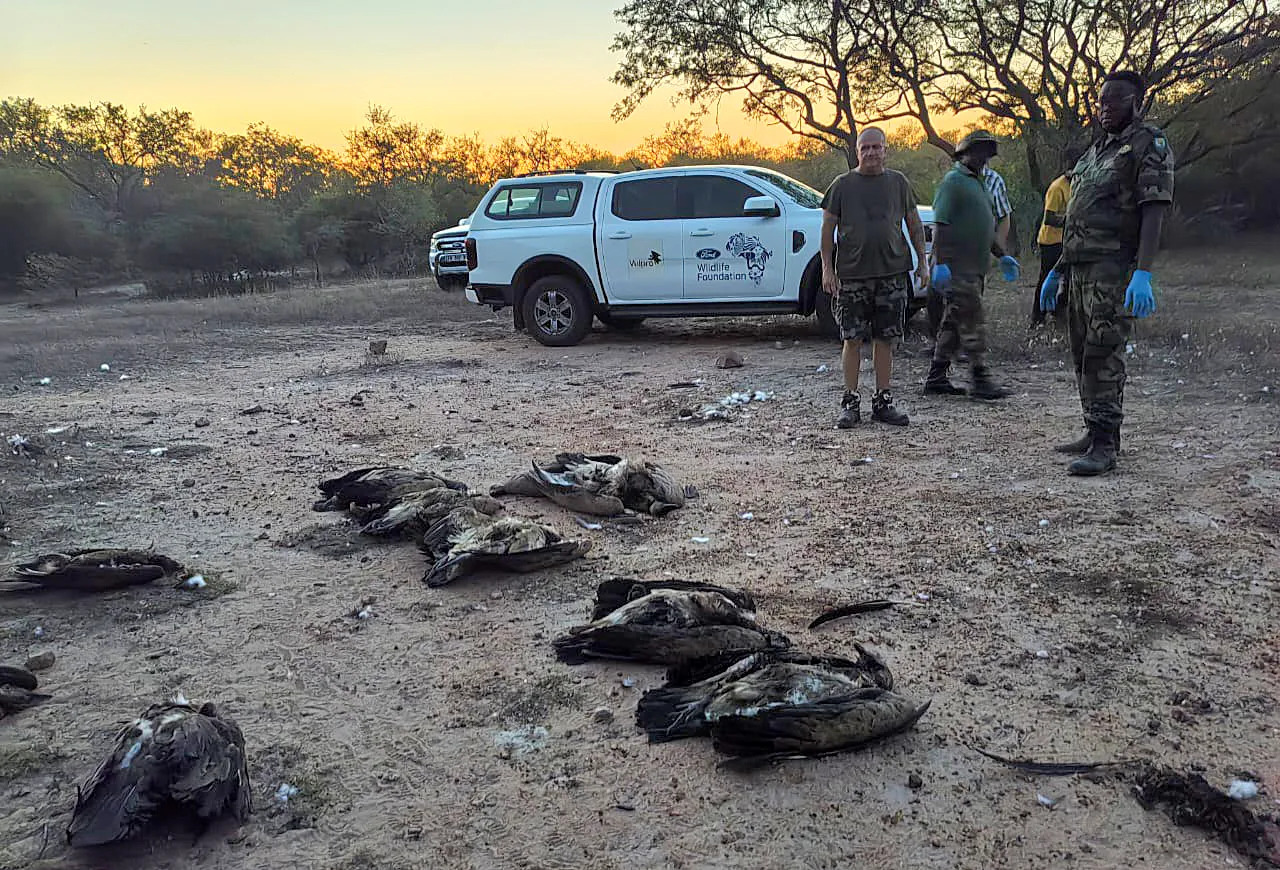
Illegal poisoning is the most critical threat to vultures in the Balkans and is preventing their comeback in the region. One of the ways we here at the Vulture Conservation Foundation are tackling this issue is through the implementation of the Balkan Anti-Poisoning Project, which is funded by the MAVA Foundation. As part of the project, we launched the Small Grants Programme to support other non-governmental organisations working on vulture conservation in the Balkan Peninsula and to facilitate the fight against poisoning in the region. The programme selected to fund a total of nine projects, dedicating a total budget of €60,000. One of these projects is the ‘Anti-Poisoning on Wildlife in Albania’, led by the Albanian Ornithological Society (AOS).
Wildlife Poisoning in Albania
Wildlife poisoning is still a “hidden crime” in Albania. People, media, and state authorities never talk about it (or almost never) but it is present, and it has been silently killing Albania’s wildlife for years. In the framework of our Balkan Anti-poisoning project, a team from the Albanian Ornithological Society (AOS) went to the south of Albania between 9-12 September to investigate cases of wildlife poisoning to bring a spotlight on this issue.
Investigating Wildlife Poisoning
Investigating Wildlife Poisoning (c) AOS
The team spent four days in the south of Albania, visiting 23 villages in five main regions (Pogradec, Korçë, Ersekë, Përmet, Gjirokastër) and filled a considerable number of questionnaires. Their main target group was local shepherds as using poison baits for the eradication of predators, which can often cause livestock damages to shepherds and livestock breeders, is the most common type of wildlife poisoning in the Balkans, according to the Balkan Vultures Poison Study.
Sometimes it is difficult to gain any information from the interviewees relating to illegal wildlife poisoning because they are suspicious and careful with the information they provide, but this was not the case this time. The team was lucky enough to gain some invaluable insights, with some of the shepherds confirming the existence of poisoning as a method to control predators, such as bears, wolfs, etc. Meanwhile, others mentioned shooting and trapping.
What caught their attention during this investigation was the fact that most of the shepherds in regions, such as Përmet and Gjirokastër, relied only on their dogs to protect their livestock because they already know that poisoning is not selective, it can kill dogs as well as wolfs.

One of the shepherds interviewed on the last day of their investigation, said: “It’s better for me to lose one sheep than one dog”. This short sentence said from this under-educated shepherd (as many of them are) made the team theorise that it’s all a matter of culture.
Why is this investigation important?
There is no official data or records of wildlife poisoning in Albania, as poisoning wasn’t regarded as a prohibited activity according to the Albanian legislation. These surveys are a way of gathering any kind of preliminary data to get an idea of the scope of the problem in the country.
The Balkan Anti-Poisoning Project Small Grants Programme
The Balkan Anti-Poisoning Project Small Grants Programme is the first time we at the Vulture Conservation Foundation have run a grant programme, and with this we aim to reinforce national capacities within relevant governmental authorities and conservation NGOs from six countries (Albania, Bosnia and Herzegovina, Croatia, Greece, North Macedonia and Serbia) of the Balkan Peninsula. This work will support those organisations to improve the skills and capabilities in the detection and mitigation of poisoning incidents through the implementation of previously developed National Roadmaps and Strategies. More specifically, through these small grants we endeavor to secure the implementation of priority anti-poisoning actions listed in the National Anti-Poisoning Road-maps/Strategies, strengthen the capacities of relevant national governmental institutions in combating the illegal use of poison baits, improve the enforcement of relevant legislation and attract other funding opportunities for implementation of large-scale anti-poisoning projects in the region. Through the support of the MAVA Foundation, we managed to dedicate a budget of €60.000 for these small grants.
Balkan Anti-Poisoning Project

The Balkan Anti-Poisoning Project is a cross-border initiative bringing together wildlife conservation organisations, governmental agencies and other stakeholder such as; hunting associations, farmers and scientists, in six Balkan countries to tackle illegal wildlife poisoning.
Funded by the Mava Foundation we aim to secure real and continued engagement of the relevant national governmental authorities in the Balkan region against illegal wildlife poisoning and increase their capacity to counteract it and working together to take positive steps to protect vultures.
The Balkan Anti-Poisoning Project is a partnership between us here at the Vulture Conservation Foundation and the Albanian Ornithological Society-AOS, Protection and Preservation of Natural Environment in Albania-PPNEA, Ornithological Society “Naše ptice”,Association BIOM, Hellenic Ornithological Society-HOS, Macedonian Ecological Society-MES.
The Balkan Anti-Poisoning Project also contributes directly into the implementation of the Vulture Multi-Species Action Plan by carrying out anti-poisoning actions in Albania, Bosnia and Herzegovina, Croatia, Greece, North Macedonia and Serbia, and is building on our work for the last decade in the Balkans thorugh the Balkan Vulture Action Plan.









